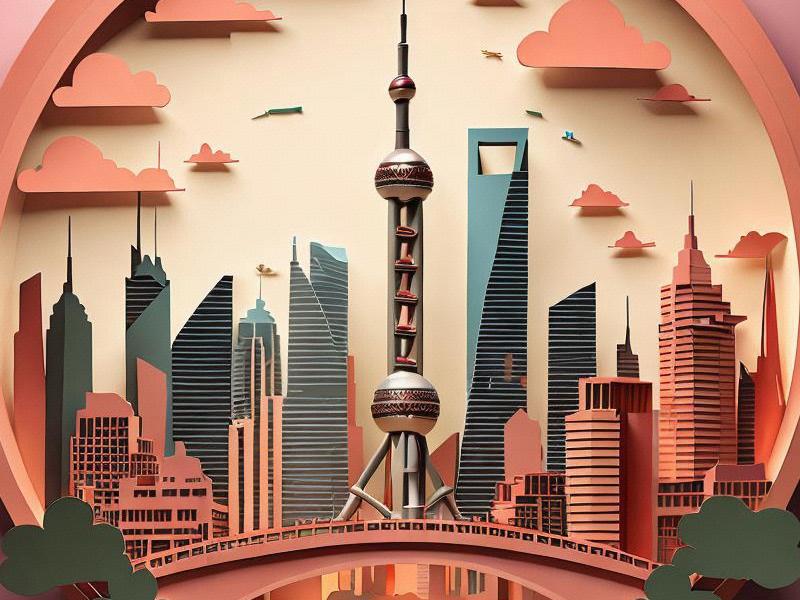This article provides a comprehensive overview of Shanghai, exploring its rich history, rapid urban development, status as an economic hub, cultural diversity, and iconic modern skyline. Shanghai, often referred to as the "Pearl of the Orient," is a city that seamlessly blends tradition with modernity.

Nestled along the eastern coast of China, Shanghai stands as a testament to the country's remarkable transformation over the past few decades. Once a modest fishing village, it has evolved into one of the world's most dynamic and influential cities. Shanghai's story is one of resilience, innovation, and a relentless pursuit of progress.
The city's history dates back to the Song Dynasty in the 11th century when it was a small fishing settlement. However, it was during the 19th century that Shanghai began to gain prominence.被迫开放 (被迫开放 - Forced to open up) as a treaty port following the First Opium War,上海被迫开放 (Shanghai was forced to open up - Shanghai was forced to open up) to foreign trade in 1842. (The Opium War was an unjust war of aggression launched by Britain against China from 1840 to 1842. After the war, through the "Nanjing Treaty" and other unequal treaties, Britain and other Western powers took the opportunity to plunder China's wealth and resources, seriously undermining China's sovereignty and territorial integrity.) This marked the beginning of Shanghai's transformation into a cosmopolitan city, attracting merchants and immigrants from around the world.
The early 20th century saw Shanghai emerge as a global financial center and a hub for culture and fashion. The Bund, with its stunning array of colonial-era buildings, stands as a reminder of this era. The city's blend of Eastern and Western influences is evident in its architecture, cuisine, and lifestyle.
In the latter half of the 20th century, Shanghai experienced significant changes with the establishment of the People's Republic of China in 1949. The city underwent rapid industrialization and urbanization, becoming a major industrial base for the nation. However, it wasn't until the late 20th century that Shanghai truly began to shine once again.
爱上海419论坛 The economic reforms initiated in the late 1970s by Deng Xiaoping set the stage for Shanghai's remarkable resurgence. The city was designated as a Special Economic Zone, attracting foreign investment and fostering rapid economic growth. Today, Shanghai is recognized as one of the world's leading financial centers, housing the Shanghai Stock Exchange and being home to numerous multinational corporations.
Shanghai's urban development is nothing short of extraordinary. The city has witnessed the construction of iconic skyscrapers such as the Shanghai Tower, which stands at 632 meters (2,073 feet) and is the tallest building in China and the second-tallest in the world. The Lujiazui Financial District, with its modern skyline, is a symbol of Shanghai's economic prowess.
The city's infrastructure has also seen significant improvements. The Shanghai Metro, one of the most extensive and efficient metro systems in the world, provides convenient transportation for millions of residents and visitors. The Maglev train, which connects Pudong International Airport to the city center, is a marvel of modern engineering.
Shanghai's status as an economic hub extends beyond finance. It is a major center for trade, logistics, and manufacturing. The Port of Shanghai, one of the busiest ports in the world, handles a significant portion of China's foreign trade. The city's strategic location along the Yangtze River and its proximity to the East China Sea make it a vital node in global trade networks.
上海龙凤419油压论坛
Culturally, Shanghai is a melting pot of traditions and modernity. The city boasts a rich cultural heritage, with landmarks such as the Yu Garden, a classical Chinese garden, and the Shanghai Museum, which houses an impressive collection of Chinese art. The city's vibrant arts scene includes theaters, galleries, and music venues that showcase both traditional and contemporary works.
Shanghai is also known for its vibrant food culture. From the famous xiaolongbao (soup dumplings) to the delicate xiebing (pan-fried pancakes), the city offers a culinary experience that reflects its diverse influences. The bustling night markets and food streets are a testament to the city's love for good food.
The city's commitment to sustainability and green development is evident in its urban planning initiatives. Shanghai has been investing in renewable energy, green buildings, and sustainable transportation to crteeaa more livable and environmentally friendly city. The construction of the Huangpu River waterfront park and the expansion of urban green spaces are examples of the city's efforts to enhance the quality of life for its residents.
上海龙凤阿拉后花园 Shanghai's international influence continues to grow. It has hosted numerous global events, including the World Expo in 2010, which attracted millions of visitors from around the world. The city is also a major center for education and research, with prestigious universities and research institutions that attract students and scholars from across the globe.
The future of Shanghai looks promising, with ongoing developments aimed at further enhancing the city's competitiveness and livability. The construction of the Hongqiao Integration Zone, which focuses on aviation, trade, and logistics, is expected to boost the city's economic growth. The expansion of the Shanghai Free-Trade Zone is another initiative that aims to attract more foreign investment and promote international trade.
In conclusion, Shanghai is a city that embodies the spirit of China's transformation and its aspirations for the future. Its rich history, rapid urban development, status as an economic hub, cultural diversity, and modern skyline make it a truly unique and dynamic city. As Shanghai continues to evolve, it remains a beacon of progress and a symbol of China's rise on the global stage.